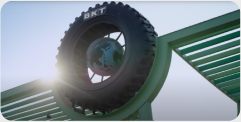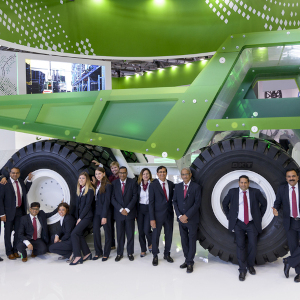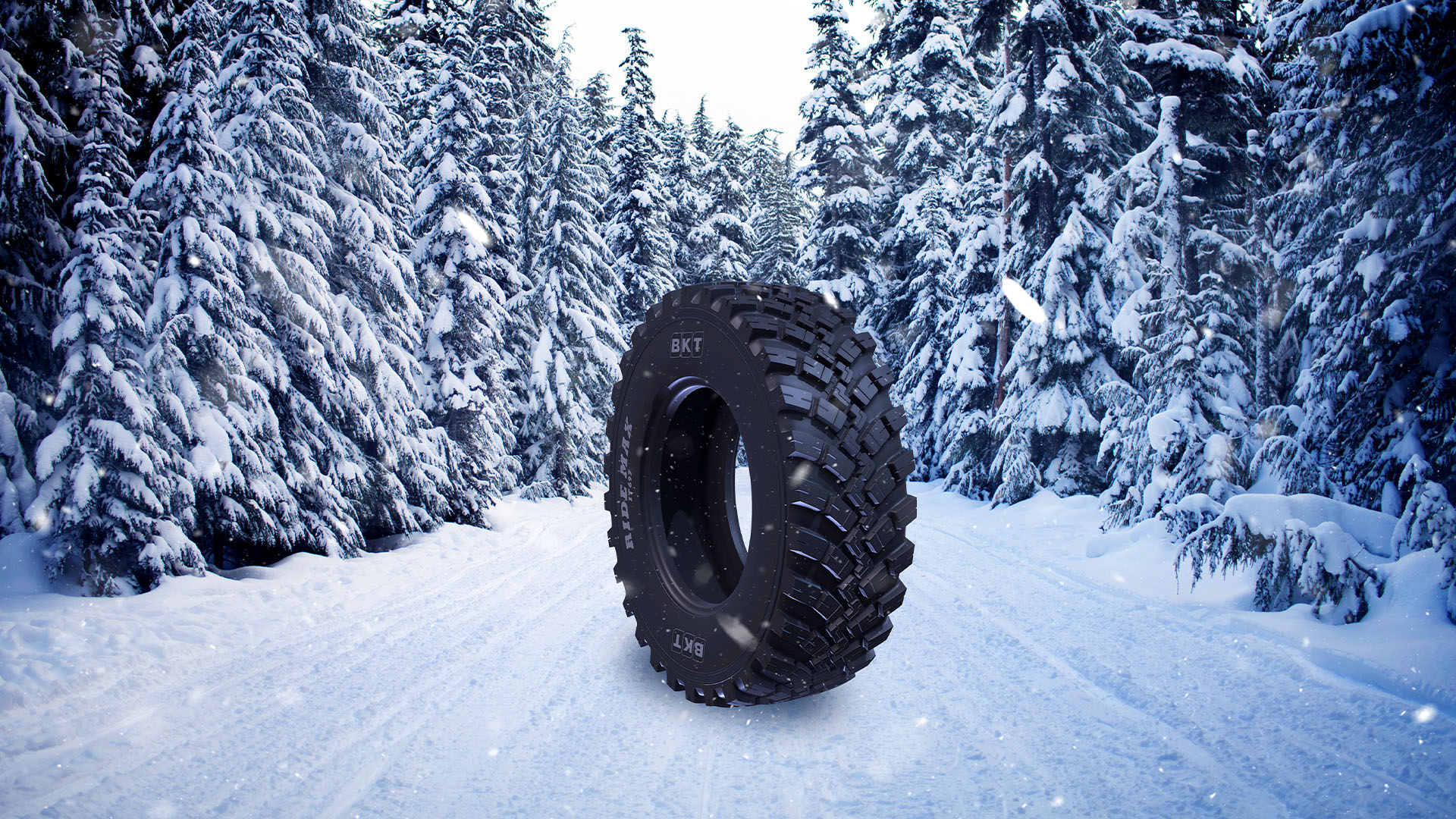Winter is here! This means that enhanced tire safety is more vital than ever, due to the season’s infamous weather conditions. Learn more in our latest blog: enjoy that scenery, have that hot cocoa, and have robust, dependable winter tires.
Winter is here! This means that enhanced tire safety is more vital than ever, due to the season’s infamous weather conditions. However, it is crucial to be aware that needs differ around the world. For specific guidance for your country, check your governing body's website. No matter where you get your tires from, they must ensure they meet safety requirements.
Here at BKT, we strive to exceed safety requirements and expectations on the road, in the field and in storage. Tire costs range from hundreds to thousands. Proper management can quell preventable expensive costs, and prolong the life of your machine's tires.
In this blog, we will go over the importance of tire safety and what you can do in preparation for the harsh winter season, to ensure the smooth running of operations. Enjoy that scenery, have that hot cocoa, and have robust, dependable winter tires.
Traction
As you well know, roads can be very icy. Depending on where you live, you could also be experiencing a constant flow of snow. Having the right winter-ready tires will ensure your tractor does the job it was designed for: generating traction.
The grip is imperative to assist traction, but as we know, there is no grip on ice. One method could be to put chains on your tire, but this is tedious and unnecessary in some countries, and the time it takes is not an efficient use of our time. BKT, for example, has a truckload of tires specifically designed for winter, meaning you do not need to deal with the hassle accompanying tire chains.
Health and Safety
The classic health and safety rigmarole… now, you may roll your eyes, yet this is, in fact, the most critical reason for tire winter care. Good health is often taken for granted while we have it, but one injury, one slip, could drastically change our quality of life - in some extreme cases, in the long term. Winter prep can therefore act as a profitable, preventive exercise.
Tractors which are not made to the highest standards to face the ice and cold head on can cause an incredibly uncomfortable ride - further worsened by high tire pressure. Vibrations can occur, and a shaky cabin can make your everyday tasks significantly harder. And it certainly isn't good for your health - make sure you avoid those aches and pains at all costs.
Tire Pressure
Frequently check your tire pressure. The pressure of a tire correlates directly with changes in temperature conditions. Did you know that tire pressure can drop significantly in freezing temperatures? Having the correct pressure will save you fuel, and with the rising costs this winter, every penny saved helps.
High pressure reduces grip, as there is less surface area and contact with the ground. Less traction will cause tires to spin, damaging the soil's structure. The harder ground on tougher tires could increase the risk of blowouts and degrade the tire further.
However, this doesn't mean that you should strive to have your tires at a low pressure: akin to baby bear’s porridge, it needs to be “just right”.
Again, unnecessary fuel is used due to too much of the tire being in contact with the ground. Too much movement and flexing can heat the rubber, which accelerates wear and tear, particularly on the road. Stability is reduced, and the tire is more likely to turn on the wheel's rim during heavy burdens.
Not all machinery is the same, and whether you are using agricultural machinery, industrial or off-the-road tires, they will all need specific pressure requirements. It is important not to guess and hope for the best!
To avoid problems with traction, manoeuvrability, and blowouts, refer to the product information to ensure it is at the optimised pressure and your daily operations can drive as smoothly as possible. Many things cause tire wear, but wrong pressure is among the most common. For a much more detailed guide on tractor tire management, visit the ‘Farmers Weekly’ here.
Storing Tires During Winter
It is not merely field operations that shorten the lifespan of your tires; the way you store them can also have a significant impact. After swapping over to your winter tires, you need to be mindful of how to keep the tires you won't be using for a while.
The first thing to do is to clean them. You do not want bacteria, excess mud, dust and stone, or empty water-ballasted tires. Once clean and dried, wrap them in an opaque waterproof sheet. That will protect your tires against dust, sunlight and moisture.
They need to be stored in a dry space, not be in contact with the ground, and ideally, stored somewhere that the temperature doesn't change too drastically. Shifts in temperature and conditions can degrade the rubber. This blog has easy-to-follow steps in much greater detail on how to store tires during the winter.
One fantastic example of a BKT winter tire (that we are really proud of!) is the RIDEMAX IT 697 M+S!. This is, by far, one of the best tires that can handle operations regardless of winter conditions. Farmers and contractors can trust that all of their needs will be met with an exceptional grip on icy and snowy roads - without the need for those pesky chains. The grooves of the tread and robust casing ensure complete stability for tractors, even when travelling at high speeds.
Are You Winter-Ready?
So, as we embark upon those shorter days and colder nights, remember to keep on top of all that was discussed above. A few extra minutes can save more time in the long run over the winter season, and prevent unforeseen headaches (or frostbite!).
Winter tires can substantially affect how safely you operate during the coming months. A quality set of winter tires beneath you while on the road or in the field will provide safe and easy operation. Do not take tire safety lightly, as winter is challenging for everyone! Look after each other, on and off the road.
BKT has a tire for every need, from agricultural machinery to construction vehicles. Our tires are seen worldwide in almost any condition and environment. Whether you're in a snowy area like the Canadian Arctic or on a muddy field in the UK, BKT provides types of rubber which are specifically designed to withstand these specific environments.
To view our entire catalogue of tires within agriculture, industrial and OTR, visit our website here.






